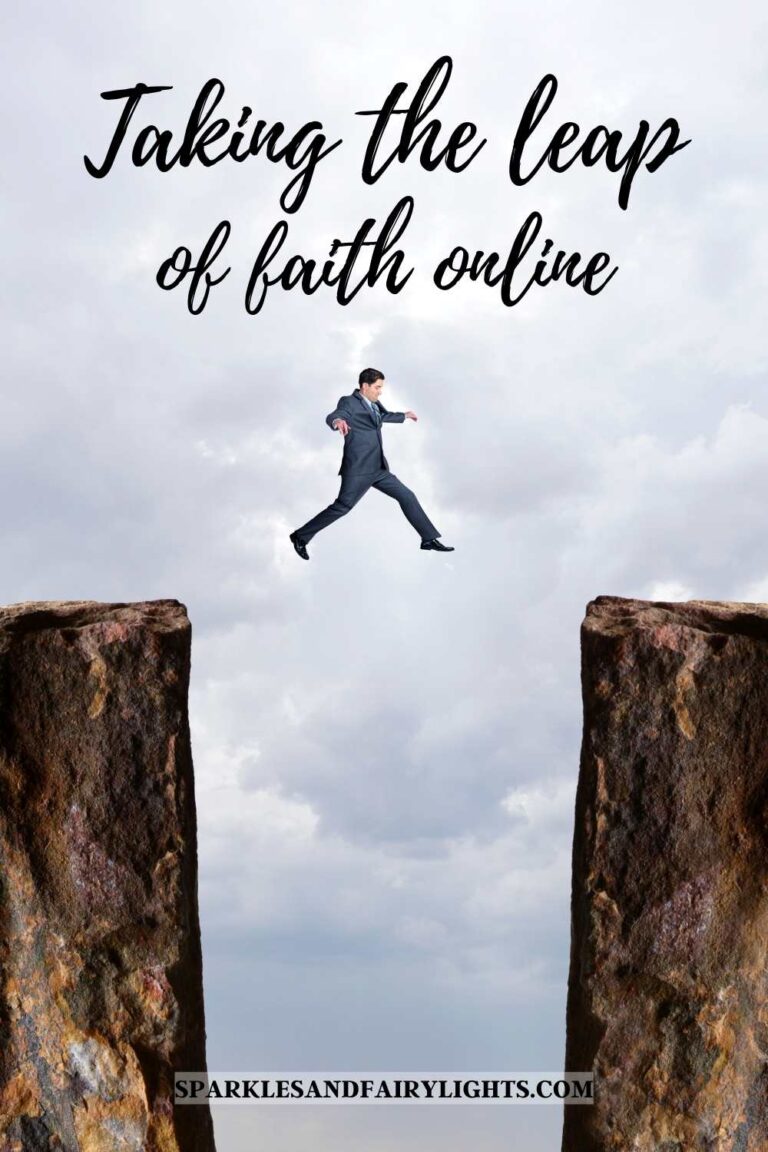Workplace confidence busters in your 40s
Are you in your 40s, doubting yourself on the job, feeling cranky and generally like you are on a never-ending rollercoaster? To boot, you can’t be too bothered about the work that doesn’t interest you as much any more and meetings are a big yawn for more reasons than one.
Sometimes, you just feel like a good old nap; sleepless nights are getting you down while mood swings and ballistic yet random fits of rage are becoming more commonplace. You certainly feel like you are on the warpath. What is going on?
Are you confused, you are not used to yourself that way and it does not feel like the person you know yourself to be. What happened to that lovely, easy-going team player you once were? Or perhaps you find yourself turning into a dreaded boss: you have seen people cowering in fear and avoiding you. Secretly, you relish the power trip, but then you promptly burst into tears because you know that something is off, big time.
If perimenopause is not on your radar, all of the above is likely to cause considerable heartache. But there is good news – the problems outlined above could very well be as a result of the fluctuating hormones of perimenopause, and treatable. First, let’s look at what perimenopause is and then at five common ways that fluctuating hormones trip you up at work.

What is perimenopause and when does it start?
According to the Latte Lounge, a trusted resource for me on the matter, perimenopause is defined as follows:
“The months and years leading up to menopause are defined as ‘perimenopause’ and on average, in the UK, this will begin around the age of 45.
“It’s during this time that your periods will start to become more infrequent and irregular. You may experience the symptoms we commonly think of as menopausal such as hot flushes, night sweats and low mood. These vary enormously from woman to woman. For some women, these symptoms are mild and last only a few months. For others the symptoms are severe and can impact other areas of their life for many years before their periods stop.”
If you are unsure of the symptoms, their symptoms checker is a wonderful resource.
Other sources have also shown that symptoms of perimenopause can start up to 10 years before menopause kicks in which is on average regarded as around 51-52.Additionally some women already experience perimenopause in their late 30s.
I will be sharing five of the most common symptoms that reduce women to wrecks at work; I have had my share too. It can feel so debilitating and one can feel all alone in it. But there is hope …
Brain fog and forgetfulness

The Guardian sheds some light on this:
“In perimenopause and the early stages of menopause, women describe changes in their ability to think clearly, make decisions and function well mentally. Some describe this as “brain fog”. They may experience difficulty assimilating and making use of new information. We now know that this form of brain fog affects around two-thirds of menopausal and perimenopausal women.”
That is right: two out of three of us over 40 will probably face some time in the ring with brain fog.
These are the five ways I experienced the debilitating effects on the job:
- Forgetting the meaning of words, mixing them up altogether or drawing a huge blank. The effect of it was a huge dip in confidence and a mountain of self-doubt.
- The inability to remain organised. I wrote it all down, but then forgot where I put it.
- I battled to reconcile dates and times. For example, knowing perfectly well when a scheduled meeting is but at that moment one blithely forgets and does something else.
- I started to forget people’s names all of a sudden and my memory took a hit. I was normally someone known for having an excellent memory.
- Brain fog is such a great way to describe it – it feels like there is a pervasive fog over your thoughts and you can’t reach for them accurately. I was normally quite sharp, but at that stage, I could not trust myself not to say something daft. Another blow to my confidence.
Silver lining: Most of us are not struggling with early-onset dementia!
Declining eyesight

I have worn glasses since my early 20s, but even so, the decline was alarming. I struggled to read the fine print required as a part of the work I had devoted much time to and loved. The problem: presbyopia.
The Mayo Clinic describes the phenomenon as follows:
“Presbyopia is the gradual loss of your eyes’ ability to focus on nearby objects. It’s a natural, often annoying part of aging. Presbyopia usually becomes noticeable in your early to mid-40s and continues to worsen until around age 65.”
The American Optometric Association (AOA) hits the nail on the head describing what changes we should anticipate at that age. Most certainly applied to me:
- Need for more light
- Difficulty reading and doing close work. Printed materials can become less clear, in part because the lens in your eye becomes less flexible over time.
- Problems with glare
- Changes in colo[u]r perception
- Reduced tear production
My personal experience with the onset of sudden, blurry vision was highly upsetting and sometimes embarrassing. I recommend having plenty of grace at this time; it is one of those things that you have to ride out. Additionally, I found that my vision would fluctuate from day to day periodically.
Silver lining: An array of functional, beautiful optometry-related options is available to remedy the problem.
Irregular, heavy periods

For some of us, it has been the bane of our lives for decades if not all of our adult lives. Yet, in our forties, it could reinvent itself one last time.
As most women who have struggled with this can attest, watching out to avoid the dreaded “accidents” on the job is not new. But how much worse is to not for women who have to engage with high-powered male peers in the boardroom; mortified, embarrassed and worried should not need to be part of her equation for success. Instead, women who have worked hard should be about the business of steering a company or making serious decisions affecting shareholders, staff and consumers.
I expect that it is also hard to explain away frequent trips to the loo when one is supposed to be a high-flying executive. How utterly vexing that this becomes an issue at the height of one’s career.
Health, a publication focusing on a healthy lifestyle for women, describes the phenomenon affecting periods in general, but for the purposes of this article, we focus on heavy bleeding:
“As your ovaries start their pre-menopause wind-down, your period schedule will be off track, which could possibly lead to a change in flow.
“Some months, the egg makes it to release on time, and everything’s fine,” said Dr Dunsmoor-Su. “Some months, it’s a bit behind, and your period will be late, and some months, it doesn’t make it at all, and you skip a month or two. When you miss ovulation, the lining of the uterus continues to grow so that when you finally bleed, it tends to be heavier.”
Silver lining: Someday, it, too, shall pass!
Stiff joints and body aches

One may find that stiffness in the morning is becoming a thing. You can no longer just jump out of bed, no one has to ease oneself out or risk being one of these people injuring themselves falling out of bed. Just kidding, but the following described by Balance is helpful:
“Joint pain, muscle aches and stiffness in the joints are extremely common symptoms during the perimenopause, menopause and beyond, which can be due to the lack of hormones [o]estrogen and testosterone.”
Interestingly it can be misdiagnosed. The Menopause Charity reports:
“Many women find their joints suddenly become stiff and painful during perimenopause and menopause, and it is also harder to build up and maintain muscle. Often menopausal women get a diagnosis from their doctor of “fibromyalgia” – all over body pain, fatigue and sleep problems – and sometimes this is just caused by lack of hormones, particularly oestrogen. The problem can often be improved by hormone replacement therapy (HRT).”
Aches and pains of all kinds tend to make an appearance and some even a reappearance. Having persistent or chronic pain is distressing and can have a significant knock-on effect on one’s confidence and productivity.
Silver lining: With a little bit of research, solutions can be found and pain controlled.
Sleepless nights

It is one of the most prevalent, pernicious symptoms of perimenopause. Women report getting ready for bed but are unable to sleep no matter what they do. Sadly, no matter how many sheep have been counted, sleep eludes. Not only does it ramp up the exhaustion, which fuels the anxiety, brain fog, etc., it also leaves one looking worse for wear. Haggard is not a look we want to have when we need to exude confidence at work.
Medical News Today reported that:
“Yes — insomnia is a frequent occurrence during perimenopause and menopause. Some people only experience mild or occasional sleep disturbances, but for others, the insomnia can be severe.”
It proceeded to note that approximately “26% of people going through perimenopause and menopause experience insomnia that affects their daily activities.”
Silver lining: There are measures that one can take to get a handle on and deal with insomnia.
I am grateful that we live in a time where both awareness of and measures for women with perimenopause and menopause are gaining explosive traction. Understanding what one is dealing with is half the battle won. Women often feel lonely and like they are going crazy while confidence plummets. You are not alone and your confidence need not – help is at hand.
Forums have helped me through some rough patches and support groups are invaluable and accessible. These are wonderful ones to keep in mind:
Latest posts
Fabulous style in our 40s
“Elegance is not being noticed; it’s about being remembered.”Giorgio Armani Giorgio Armani famously said, “Elegance is not being noticed; it’s about being remembered.” Such is the dramatic impact art, fashion and dressing can have on an individual. Indelible impressions imprinted…
Challenging your comfort zone
As we age and find ourselves in our midlife years, there comes a time when we wonder about whether unfulfilled dreams for our lives will ever come to pass, whether it is too late to go after that daring career…
Letting go of these 10 things – 40s living
Why should you stop drinking or smoking in your 40s? And what about thinking bad thoughts? Let go of what you may ask? Well, there are certain things that are no longer beneficial to our #bodies, minds and souls as…
Hips, knees, joints et al don’t lie
Ladies, we may or may not be professional athletes, but our bodies are also put to the test on a daily basis, albeit in different ways and by mid-40s the wear and tear starts to become evident. The #stiffness so…
- Authenticity, professionalism and hope in a curated world - February 6, 2025
- Authentic epiphany watching the trailer for “With love, Meghan” - January 27, 2025
- Why Trump 2.0 delivered, and Jaguar not so much - November 27, 2024












After looking at a handful of the blog posts on your blog, I honestly like your technique of
blogging. I bookmarked it to my bookmark webpage list and will be checking back soon. Please visit
my website as well and tell me your opinion.
Good day,
I apologise for the delay in my response. Thank you for taking the time to comment. I genuinely appreciate it.
I have taken a look and am a little bit confused as it leads me to Denver7. Of course, I like the clean format and readability of the that site: it complements the content perfectly.